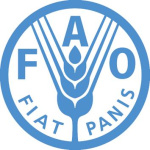- Domeniu: Agriculture
- Number of terms: 87409
- Number of blossaries: 0
- Company Profile:
Established in October 1945 with the objective of eliminating hunger and improving nutrition and standards of living by increasing agricultural productivity, FAO coordinates the efforts of governments and technical agencies in programs for developing agriculture, forestry, fisheries, and land and ...
Protein drugs consisting of an antibody joined to a toxin molecule. Immunotoxins can be made by linking toxin and antibody molecules chemically, or by fusing the genes for the toxin and the antibody. The antibody portion of the molecule facilitates binding to a target molecule or cell, and the toxin inactivates or kills the target molecule or cell.
Industry:Biotechnology
Protein that is overproduced in a recombinant bacterium and forms a crystalline array inside the bacterial cell.
Industry:Biotechnology
Proteins accumulated in large amounts in seeds not because of their enzymatic or structural properties but simply as a convenient source of amino acid for use when the seed germinates. They are of interest to biotechnologists:
1. As a source of protein. Much of the world's food comes from plant seeds or fruits, and much of the protein in those seeds is storage protein. Thus a substantial amount of the world's food protein comes from plant storage protein. Any improvement of the nutritional content of those proteins could correspondingly improve human diet.
<i>2.</i> As expression systems. Storage proteins are produced in very large amounts relative to other proteins, and are stored in stable, compact bodies in the plant seed. Several workers are seeking to make the plants produce other proteins in similarly large amounts and in as convenient a form, by splicing the gene for a desired protein into the middle of a plant storage protein gene.
Industry:Biotechnology
Proteins that bind to antibody-antigen complexes and help degrade the complexes by proteolysis.
Industry:Biotechnology
Proteins with an important role in relaying signals in mammalian cells. The proteins occur on the inner surface of the plasma membrane and transmit signals from outside the membrane, via transmembrane receptors, to adenylate cyclase, which catalyses the formation of the second messenger, cyclic AMP, inside the cell. G-proteins derive their name from their ability to bind to guanine nucleotides, namely GTP and GDP; the GTP-protein complex is able to activate adenylate cyclase, whereas the GDP-protein complex is unable. G-proteins are activated when the signalling molecule (typically a hormone) binds to the transmembrane receptor.
Industry:Biotechnology
Putting something into the outside world; in biotechnology it means putting a genetically modified organism (GMO) into field trials.
Industry:Biotechnology
Quiet, at rest, but not necessarily dormant, and having the potential for resumed activity; can apply to non-meristematic cells.
Industry:Biotechnology
Rapid freezing followed by a dehydration under high vacuum. The process is lyophilization. <i>cf</i> freeze-drying.
Industry:Biotechnology
